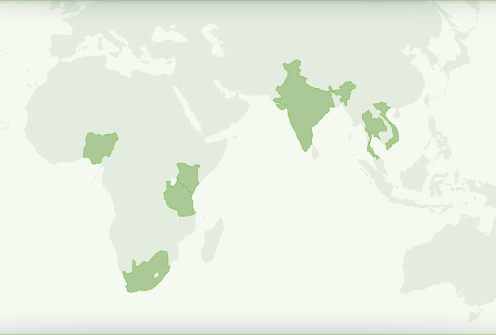
India
In India around 70% of total health expenditure is born by patients and their families as out-of -pocket payments, and this has led to huge indebtedness among the poor and most vulnerable households...

Kenya
Improving equitable access to health services is a priority for the health sector in Kenya, with efforts to increase the availability of health workers and reduce the financial burden of care...

Nigeria
Given its high burden of disease and large population, health financing levels in Nigeria are low, accounting for just 20–30% of total health expenditure. The largest source of finance is out-of-...
South Africa
South Africa’s health system post the apartheid era (1994 onwards) has been characterised by massive transformation based on equity principles, led by the African National Congress government....

Tanzania
Strengthening the health system through improved quality of care, universal coverage and equitable health financing schemes, is one of the Government’s priorities for health in Tanzania. This...

Thailand
By early 2002, Thailand achieved universal coverage (UC) in access to health care by introducing a tax-funded health insurance scheme, the UC scheme. This led to a radical shift in the main source...

Vietnam
Health care in Vietnam is financed through several sources including user fees, government tax revenue and health insurance. Whilst Vietnam spends a high share of GDP on health compared with other...

